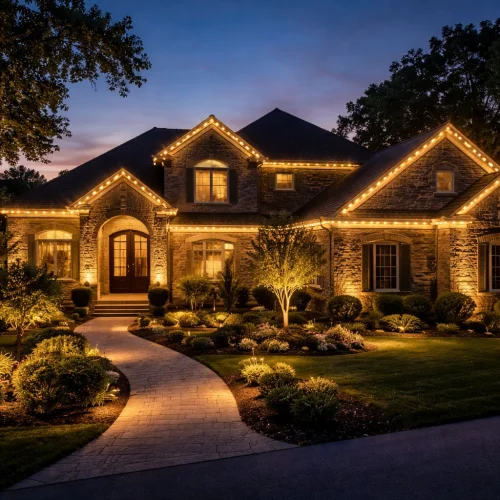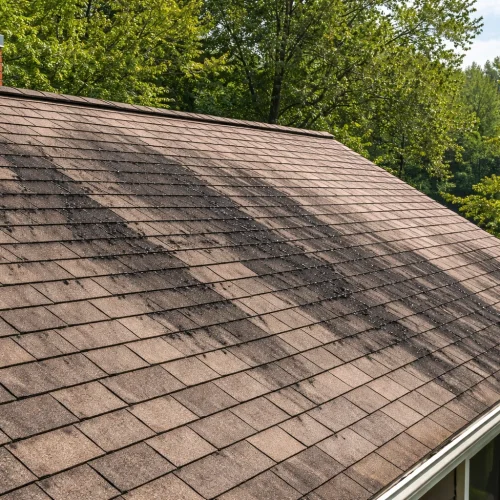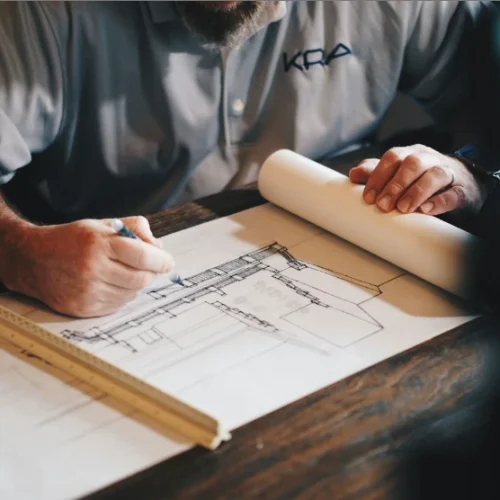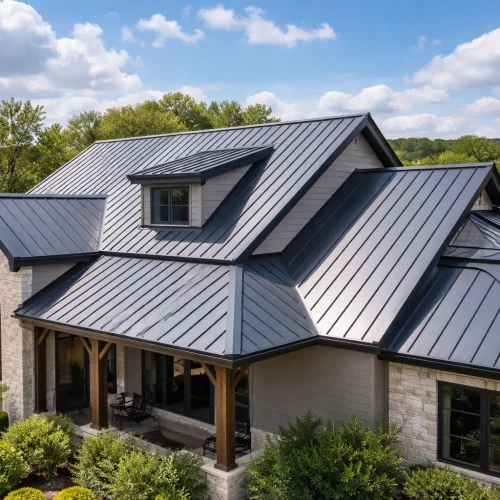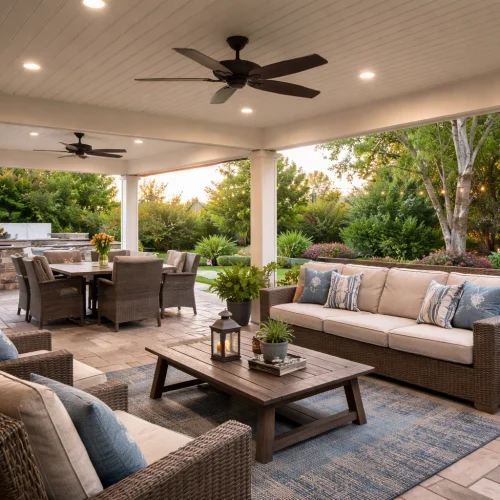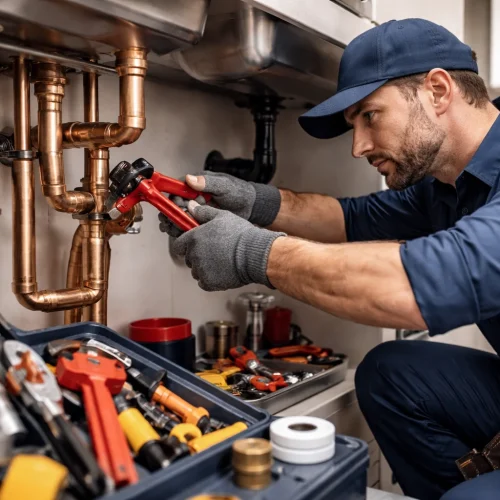
Buying your first mobile home is a major step toward homeownership and financial independence. Mobile homes have become a popular option for many first-time buyers because they combine comfort, flexibility, and affordability.
Whether you plan to live in a mobile home community or place it on private land, taking the right steps before making your purchase can help you make a smart and lasting investment.
Assessing Your Financial Readiness
Before beginning the buying process, take time to review your financial situation. Understanding your income, expenses, and savings will help you determine what kind of home you can afford. It is important to have a clear budget that includes not only the cost of the mobile home but also related expenses such as installation, insurance, and maintenance.
Check your credit score and review your debt-to-income ratio, as these factors play a key role in qualifying for financing. Paying off existing debts and keeping your credit in good standing can improve your eligibility for better loan terms. Setting up an emergency fund is also essential, as owning a mobile home comes with ongoing responsibilities like repairs and upkeep.
Exploring Financing and Loan Options
Financing a mobile home can differ from purchasing a traditional property. Many buyers find that securing a mobile home loan is the best way to make ownership possible. These loans are designed specifically for mobile or manufactured homes and may vary based on whether the home is placed on leased land or land you own.
Before applying for financing, research different loan programs to understand the requirements, repayment terms, and interest structures. Some lenders offer loans only for homes that meet certain standards, such as being permanently affixed to a foundation. Comparing options carefully will help you choose a loan that fits your long-term financial plans.
Choosing the Right Type of Mobile Home
Mobile homes come in several types, including single-wide, double-wide, and multi-section models. The right choice depends on your lifestyle, family size, and space preferences. Single-wide homes are compact and cost-effective, while double-wide homes offer more living space and design flexibility.
Consider how much space you need now and what you may need in the future. If you plan to live in your mobile home long-term, look for models with durable materials, efficient layouts, and the ability to accommodate upgrades over time.
Selecting a Suitable Location
Where you place your mobile home is just as important as the home itself. You can either purchase land or lease a lot in a mobile home park. Each option has its benefits and responsibilities.
If you plan to buy land, check local zoning regulations to ensure that mobile homes are permitted in that area. Review access to utilities such as water, electricity, and sewage before finalizing the location. On the other hand, if you choose to live in a mobile home community, review park rules, fees, and maintenance policies to ensure they align with your lifestyle and budget. A well-chosen location not only enhances your daily living experience but also influences your home’s long-term value.
Inspecting the Mobile Home
A thorough inspection is one of the most important steps before finalizing your purchase. Whether you are buying a new or pre-owned mobile home, an inspection helps identify potential issues early.
Professional inspectors focus on key areas such as the roof, flooring, plumbing, electrical systems, insulation, and structural supports. For mobile homes, additional checks are required for the undercarriage, frame, and anchoring system. These components ensure the home’s stability and safety. If the home is pre-owned, ask about its maintenance history and any previous repairs. Addressing small issues before closing the deal can prevent major expenses later. Always hire a qualified inspector experienced in mobile homes to ensure a reliable assessment.
Evaluating Energy Efficiency and Construction Quality
Modern mobile homes are built to higher standards than older models, offering better insulation and energy performance. When evaluating homes, check for energy-efficient windows, proper ventilation, and durable construction materials.
Inspect the home’s foundation or support system to ensure it meets local building codes. High-quality construction can improve comfort, reduce energy costs, and increase the home’s lifespan. Paying attention to these details early can save money in the long run and provide a safer, more reliable living space.
Reviewing Legal and Ownership Documents
Before signing any agreements, review all documents related to the purchase. This includes the title, bill of sale, warranty details, and land lease or ownership contracts. Confirm that the title is clear and that there are no existing liens on the property.
If your mobile home will be placed on leased land, carefully read the lease terms to understand your rights and responsibilities. Some communities may have restrictions on home size, age, or modifications, so clarifying these details in advance can prevent future complications. It may be beneficial to seek advice from a legal or real estate professional familiar with mobile home transactions to ensure all paperwork is complete and accurate.
Planning for Installation and Setup
After purchasing your mobile home, proper installation is crucial for safety and comfort. The home must be leveled and anchored correctly according to the manufacturer and local guidelines. Improper setup can lead to structural damage and affect the home’s long-term stability.
Choose experienced installers who are certified to handle mobile home setup. Ensure all utility connections are properly installed and inspected before moving in. Good preparation at this stage ensures that your home remains secure and functional for years to come.
Preparing for Ownership and Maintenance
Owning a mobile home comes with ongoing responsibilities that require planning and attention. Create a budget for routine maintenance, insurance, and utility costs. Regular inspections of roofing, plumbing, and exterior siding will help maintain the home’s condition and prevent costly repairs. Keeping records of all repairs and upgrades can also be helpful for future resale or refinancing. Mobile homes, like any property, need consistent care to preserve value and comfort.
Buying your first mobile home is a rewarding step toward independence and financial stability. Each stage—from securing financing to choosing the right location—requires thoughtful planning and informed decisions. By understanding your budget, researching loan options, and ensuring proper inspection and installation, you can make the buying process smooth and satisfying.
FAQs
Review your finances, credit score, and budget. Then inspect the home, confirm location rules, and check all legal documents.
Calculate your income, expenses, and savings. Include extra costs like installation, maintenance, and insurance.
Yes. Mobile home loans may have different terms and eligibility, especially if the home sits on leased land.
Common types include single-wide, double-wide, and multi-section homes—each offering different space and layout options.
Buying land gives long-term control, while leasing offers convenience and lower upfront costs.
Inspections reveal structural, electrical, and plumbing issues before purchase, saving you from costly repairs later.
Seek homes with insulated windows, quality roofing, and efficient HVAC systems to reduce long-term costs.
You’ll need a clear title, bill of sale, warranty papers, and any land lease or ownership contracts.
Hire licensed professionals experienced in mobile home setup to ensure proper leveling and secure anchoring.
Inspect the roof, plumbing, and foundation regularly. Keep detailed maintenance records to preserve resale value.




